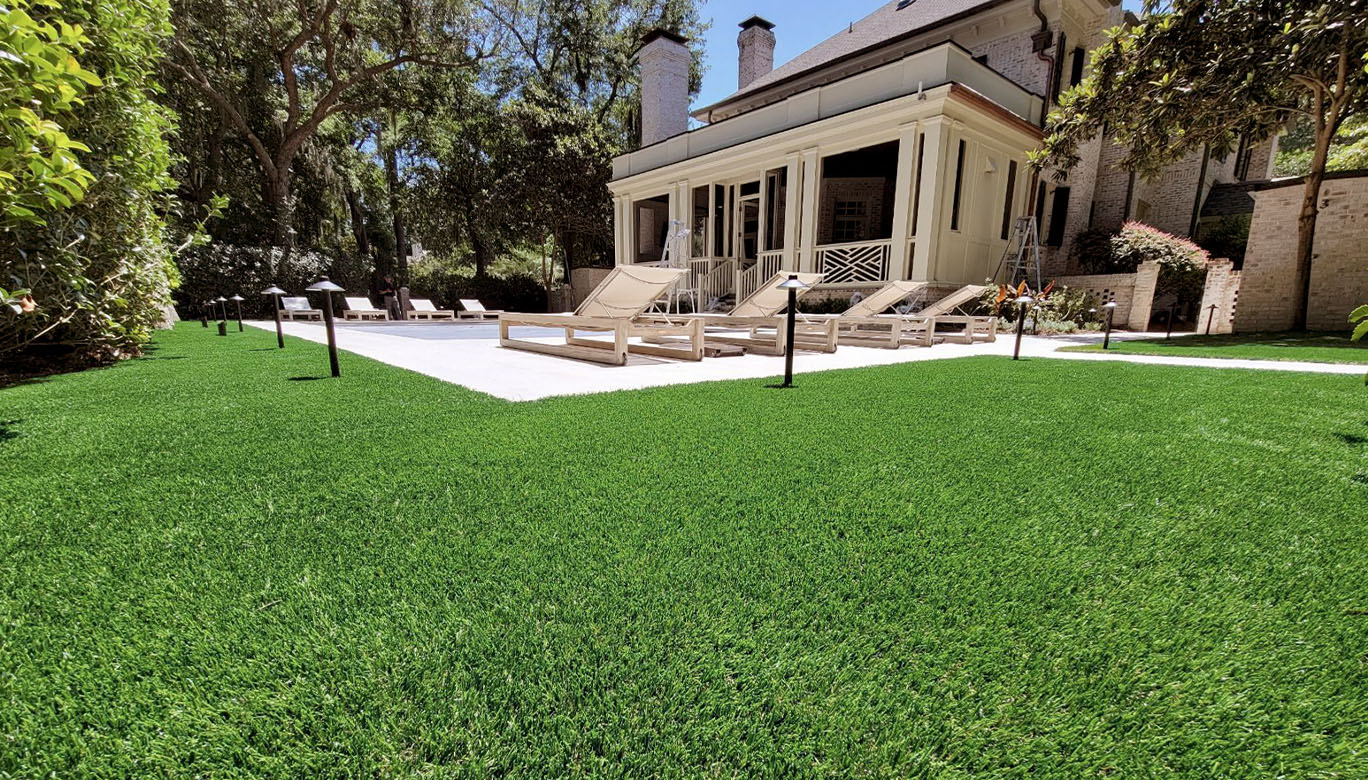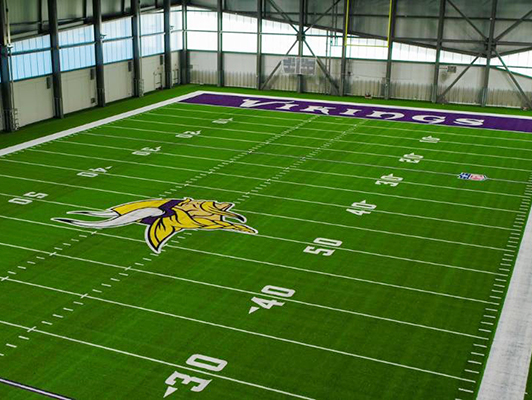Premium Arizona Turf Solutions for a Attractive and Green Landscape
Premium Arizona Turf Solutions for a Attractive and Green Landscape
Blog Article
Delve Into the Environmental Conveniences of Opting for Synthetic Grass Solutions
The fostering of artificial grass options provides an engaging possibility to address pushing environmental difficulties. By significantly minimizing water use and reducing the application of hazardous chemicals, these options not just promote sustainable landscape design but also secure neighborhood ecological communities.
Water Preservation Advantages
One of the most considerable advantages of synthetic turf is its capability to preserve water. In comparison, synthetic turf does not require watering, significantly lowering the total demand for water resources.
By getting rid of the demand for routine watering, synthetic grass adds to lasting landscape methods and helps reduce the ecological effect of excessive water intake. The conservation of water prolongs to the decrease of runoff, which can lead to soil disintegration and river air pollution.
Furthermore, the installment of synthetic grass enables house owners and districts to designate water sources extra successfully, concentrating on necessary usages such as alcohol consumption water and farming. The shift towards fabricated turf not only promotes accountable water use however additionally aligns with wider environmental goals aimed at protecting natural deposits.
As communities significantly prioritize sustainability, the water conservation advantages of synthetic grass offer an engaging situation for its adoption in household and commercial landscaping jobs.
Decreased Chemical Usage
The change to fabricated grass significantly reduces the reliance on chemical therapies frequently used in natural grass upkeep. Standard lawn management typically entails the application of fertilizers, chemicals, and herbicides to promote development and control bugs. These chemicals can posture risks to human health and wellness, regional wild animals, and the environment, adding to soil and water contamination.
In comparison, synthetic grass eliminates the demand for these damaging compounds. As soon as installed, it needs minimal maintenance, mostly consisting of routine cleansing and infrequent infill replenishment. This decrease in chemical usage not only profits the prompt atmosphere but likewise adds to more comprehensive eco-friendly stability. By minimizing the release of synthetic compounds right into the ecosystem, synthetic grass promotes healthier soil and water systems.
In addition, the absence of chemical runoff connected with synthetic grass installations assists shield local rivers from air pollution, supporting marine life and maintaining biodiversity. Phoenix turf companies. As neighborhoods significantly prioritize sustainable practices, opting for synthetic grass offers a viable service that aligns with ecological conservation objectives. Through this change, home owners can take pleasure in rich green rooms without compromising ecological wellness, leading the means for a much more sustainable future
Lower Carbon Impact

Additionally, the installation of fabricated turf can cause significant water preservation. All-natural lawns need substantial quantities of water for irrigation, which not only includes to the carbon impact related to water extraction and therapy yet also stress neighborhood water resources. In contrast, synthetic grass requires minimal maintenance, needing no watering, thereby significantly minimizing water use and its linked power expenses.
In addition, the long life of artificial turf adds to its decreased carbon effect. With a lifespan of up to 15 years or more, the requirement for regular substitutes is reduced, resulting in much less waste and reduced power intake in production and taking care of traditional turf alternatives. On the whole, synthetic grass presents a lasting choice for ecologically conscious landscaping.
Environment Conservation
Environment conservation is an essential factor to consider in the debate over landscaping choices, particularly when contrasting synthetic grass to natural grass. All-natural lawn yards frequently call for considerable upkeep, consisting of the use of chemicals, herbicides, and fertilizers, which can detrimentally impact regional environments. These chemicals can leach right into the dirt and waterways, damaging native vegetation and fauna and interrupting local environments.
On the other hand, synthetic grass offers an opportunity to lower the eco-friendly impact of landscaping. By choosing artificial turf, house owners can minimize the interruption of all-natural habitats related to traditional yard treatment practices. Synthetic grass removes the requirement for hazardous chemicals, therefore protecting nearby wild animals and maintaining the stability of bordering ecosystems. Furthermore, the installment of synthetic grass can bring about the conversion of previous turf locations right into even more biodiverse landscapes, such as pollinator yards or indigenous plant locations, which can sustain local wild animals.
Eventually, the shift to synthetic grass not only preserves water and reduces maintenance efforts yet additionally click this link promotes an extra unified connection in between human activities and the natural surroundings, advertising environment conservation at the same time.
Long-Term Sustainability
Lasting sustainability is an essential element in evaluating the advantages of synthetic turf over typical lawn yards. Among one of the most considerable benefits of man-made grass is its sturdiness; it can last up to 15-20 years with marginal maintenance, whereas all-natural lawn requires regular reseeding and replacement. This longevity decreases the demand for continuous sources, such as water, fertilizers, and chemicals, which are vital for keeping a healthy grass lawn.
In addition, artificial grass adds to a reduction in carbon exhausts connected with yard treatment tools. Traditional yards often need gas-powered lawn mowers, leaners, and blowers, all of which contribute to air contamination. Phoenix turf companies. In comparison, synthetic grass eliminates the requirement for such devices, advertising a cleaner setting
Additionally, the manufacturing of read this synthetic grass progressively utilizes recycled materials, improving its sustainability account. As suppliers adopt environmentally friendly methods, the ecological impact of fabricated turf proceeds to lessen.

Conclusion
The adoption of man-made lawn remedies offers significant ecological advantages, including substantial water conservation, decreased dependence on unsafe chemicals, and a lower carbon footprint. Additionally, synthetic grass help in protecting all-natural habitats by reducing land disturbance and promoting long-term sustainability via making use of long over at this website lasting products. Collectively, these variables underscore the possibility of man-made grass to contribute positively to ecological wellness and supply a feasible alternative to typical landscape design practices in an increasingly resource-conscious world.
In contrast, fabricated grass does not need watering, significantly decreasing the total demand for water sources. By lessening the release of synthetic substances into the ecosystem, man-made grass promotes healthier dirt and water systems.
Additionally, the installment of man-made turf can result in significant water conservation. In contrast, synthetic grass needs marginal upkeep, needing no watering, thereby dramatically decreasing water use and its associated energy expenses.

Report this page